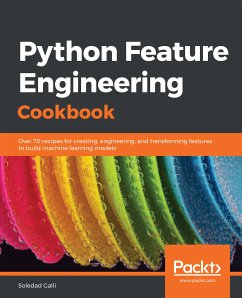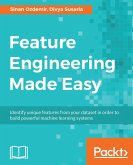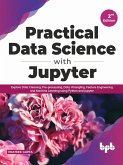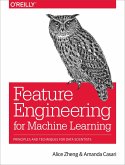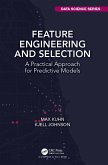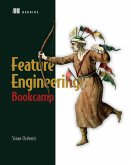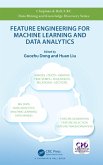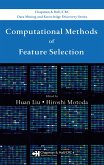Key Features
- Discover solutions for feature generation, feature extraction, and feature selection
- Uncover the end-to-end feature engineering process across continuous, discrete, and unstructured datasets
- Implement modern feature extraction techniques using Python's pandas, scikit-learn, SciPy and NumPy libraries
Book Description
Feature engineering is invaluable for developing and enriching your machine learning models. In this cookbook, you will work with the best tools to streamline your feature engineering pipelines and techniques and simplify and improve the quality of your code.
Using Python libraries such as pandas, scikit-learn, Featuretools, and Feature-engine, you'll learn how to work with both continuous and discrete datasets and be able to transform features from unstructured datasets. You will develop the skills necessary to select the best features as well as the most suitable extraction techniques. This book will cover Python recipes that will help you automate feature engineering to simplify complex processes. You'll also get to grips with different feature engineering strategies, such as the box-cox transform, power transform, and log transform across machine learning, reinforcement learning, and natural language processing (NLP) domains.
By the end of this book, you'll have discovered tips and practical solutions to all of your feature engineering problems.
What you will learn
- Simplify your feature engineering pipelines with powerful Python packages
- Get to grips with imputing missing values
- Encode categorical variables with a wide set of techniques
- Extract insights from text quickly and effortlessly
- Develop features from transactional data and time series data
- Derive new features by combining existing variables
- Understand how to transform, discretize, and scale your variables
- Create informative variables from date and time
Who this book is for
This book is for machine learning professionals, AI engineers, data scientists, and NLP and reinforcement learning engineers who want to optimize and enrich their machine learning models with the best features. Knowledge of machine learning and Python coding will assist you with understanding the concepts covered in this book.
Dieser Download kann aus rechtlichen Gründen nur mit Rechnungsadresse in A, B, BG, CY, CZ, D, DK, EW, E, FIN, F, GR, HR, H, IRL, I, LT, L, LR, M, NL, PL, P, R, S, SLO, SK ausgeliefert werden.

